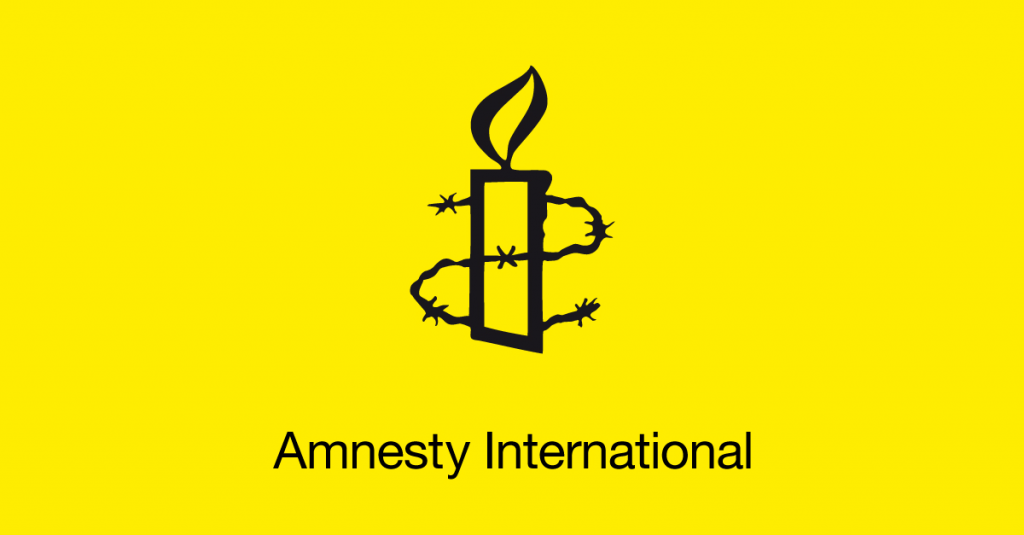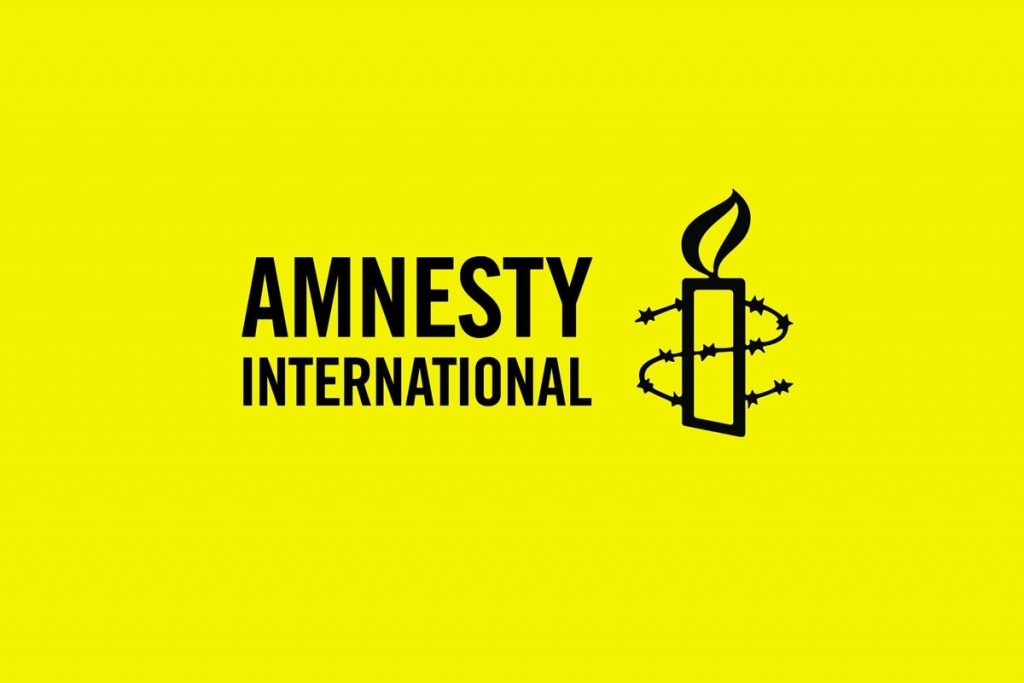Bucaramanga, viernes 18 de mayo de 2018
Doctora
MARÍA ÁNGELA HOLGUÍN CUÉLLAR
Ministra de Relaciones Exteriores
Calle 10 No. 5 – 51
Palacio de San Carlos
Bogotá (D.C.)
Referencia: SOLICITUD DE INTERVENCIÓN DE LA CANCILLERÍA ANTE LA ONU Y EL GOBIERNO DE SUDÁN PARA QUE NO MATEN A LA JOVEN NOURA HUSSEIN.
“Nadie es una isla entera por sí mismo; cada hombre es una pieza del continente, una parte del todo; si el mar se lleva una porción de tierra, toda Europa queda disminuida, como si fuera un promontorio, o la casa solariega de uno de tus amigos, o la tuya propia; ninguna persona es una isla; la muerte de cualquiera me afecta, porque estoy unido a toda la humanidad; por eso, nunca preguntes por quién doblan las campanas; están doblando por ti”. John Donne (1572-1631). Meditación XVII de Devotions Upon Emergent Occasions. Epígrafe del libro ¿Por quién doblan las campanas? de Ernest Hemingway.
Dignísima señora Canciller:
Desde mi condición de ciudadano colombiano, me dirijo a Usted, con el mayor respeto, para encarecerle su valioso apoyo al movimiento que se está organizando en el mundo para tratar de persuadir al Estado sudanés de que no ejecute a la joven sudanesa de 19 años NOURA HUSSSEIN, quien acaba de ser condenada a la pena de muerte por un hecho que, en cualquier latitud y a la luz de cualquiera de las escuelas del Derecho Penal, para la conciencia de cualquier hombre o mujer decente, constituyó un acto de legítima defensa de su honor.
En efecto, NOURA HUSSEIN fue obligada a casarse a sus 16 años en virtud de un convenio celebrado entre su padre y el hombre que decidió tomarla por esposa, a pesar de su oposición, de que no lo amaba, y de que ella manifestó que no le asistía interés alguno en casarse con nadie, pues su sueño era estudiar para convertirse en maestra.
El artículo 23 del Pacto Internacional de Derechos Civiles y Políticos, aprobado unánimemente por la Asamblea General de las Naciones Unidas (Nueva York, 16 de diciembre de 1966) advierte claramente que
“2. Se reconoce el derecho del hombre y de la mujer a contraer matrimonio y a fundar una familia si tiene edad para ello.
3. El matrimonio no podrá celebrarse sin el libre y pleno consentimiento de los contrayentes”.
Como se observa, a la luz del Derecho Internacional la mujer tiene derecho a casarse, pero no la obligación de hacerlo.
Y no se puede, sin violar el Derecho Internacional, celebrar un matrimonio pasando por encima del libre y pleno consentimiento de la mujer.
El artículo 26 del mismo Pacto dice que
“Todas las personas son iguales ante la ley y tienen derecho, sin discriminación, a igual protección de la ley. A este respecto, la ley prohibirá toda discriminación y garantizará a todas las personas protección igual y efectiva contra cualquier discriminación por motivos de raza, color, sexo, idioma, religión, opiniones políticas o de cualquier orden, origen nacional o social, posición económica, nacimiento o cualquier otra condición social”.
Dado que había sido forzada a casarse con aquel hombre, NOURA se negó a tener relaciones sexuales con él, en ejercicio de su elemental derecho al libre desarrollo de su personalidad, reconocido a escala universal, pero el hombre que le asignaron como esposo procedió, entonces, a violarla con la ayuda de dos de sus hermanos y uno de sus primos, quienes la sujetaron como a un animal mientras su no deseado marido la violaba. Al día siguiente de aquella acción bárbara, el hombre la volvió a agredir sexualmente él solo, pero en los momentos en que lo hacía, la joven logró tomar un cuchillo de la cocina y apuñaló a quien mancillaba su honor, su dignidad y su libre autodeterminación sexual.
La justicia sudanesa la ha condenado a la pena capital, lo cual ha despertado una reacción en cadena dentro del mundo civilizado, de suerte que organizaciones como Amnesty International se han pronunciado en contra de su inminente e injusta ejecución y se encuentran desplegando una campaña en todo el orbe encaminada a tratar de disuadir a Sudán para que no la mate, hecho que, de consumarse, se llevaría a cabo llevándola a la horca.
El artículo 6º del Pacto expresa que
“1. El derecho a la vida es inherente a la persona humana. Este derecho estará protegido por la ley. Nadie podrá ser privado de la vida arbitrariamente.
2. En los países que no hayan abolido la pena capital sólo podrá imponerse la pena de muerte por los más graves delitos y de conformidad con leyes (…) que no sean contrarias a las disposiciones del presente pacto (…)”.
Señora Canciller:
Como miembro de la comunidad internacional, la República de Colombia debe ser consecuente con la que ha sido desde 1910 su posición oficial en contra de la pena de muerte.
Colombia proscribió la pena de muerte en 1910 y reafirmó su decisión abolicionista en 1925 con ocasión del memorable debate parlamentario en el que se discutió la reimplantación de la privación de la vida como sanción penal, debate en el que dos de nuestras más grandes inteligencias tomaron parte con su reconocida elocuencia: los oradores Guillermo Valencia, por el Partido Conservador, y Antonio José Restrepo, por el Partido Liberal.
Colombia, además, suscribió en el seno de las Naciones Unidas la Declaración Universal de los Derechos Humanos, que en su artículo 5º prohíbe que cualquier persona sea sometida a penas o tratos crueles, inhumanos o degradantes.
Colombia es una nación que, más allá de sus problemas internos, ha exhibido siempre ante el planeta una inquebrantable voluntad de defender las soluciones civilizadas y justas frente a los grandes problemas que emergen en cualquier sociedad, partiendo siempre de la base de un espíritu humanista e inclinado hacia el respeto de la persona humana en su dignidad, particularmente en lo que toca con el respeto que ya es hora de que en todo el orbe se muestre hacia la mujer y hacia sus derechos más elementales como lo es el de decidir libre y soberanamente acerca de su cuerpo.
Nuestro Presidente, el Doctor Juan Manuel Santos Calderón, es el actual Premio Nobel de la Paz y su figura prominente en el concierto internacional le daría un peso inmenso a cualquier pronunciamiento que el Estado colombiano haga a favor de que a NOURA HUSSEIN se le respete la vida y sea sometida a un juicio imparcial en el que se tomen en cuenta las circunstancias exactas a las que se vio abocada desde que, a la edad de 16 años, la forzaron a casarse con un hombre que le fue impuesto.
Lo que se está reclamando ante el señor Presidente de Sudán es el INDULTO para esta joven y desdichada mujer sudanesa.
El precitado artículo 6º del Pacto advierte que
“Toda persona condenada a muerte tendrá derecho a solicitar el indulto o la conmutación de la pena. La amnistía, el indulto o la conmutación de la pena capital podrán ser concedidos en todos los casos”.
Es obvio que la sola solicitud de indulto que eleve NOURA HUSSEIN será apenas una petición débil si no se fortalece con la pluma y la voz de personalidades y entidades del mundo civilizado que la coadyuven.
Podría invocarse, y sé de antemano que algunos —no Usted, por supuesto— lo dirán, que el suyo es un asunto geográficamente lejano, que Sudán tiene su propia religión y su propia cultura, en fin, que se trata de una persona más entre tantas que mueren, en este planeta enloquecido, a consecuencia de las guerras, de los atentados y del hambre. Empero, además de que Sudán es miembro de la Organización de las Naciones Unidas (ONU), tales argumentaciones son sofísticas y no podemos seguirlas aceptando como pretexto para silenciarnos ante los atropellos a la dignidad del ser humano, y particularmente de la mujer, ni ante inequidades tan aberrantes e inadmisibles para cualquier persona decente como la que está a punto de cometerse en aquel país del sufrido continente africano contra una joven mujer sumida en la más absoluta soledad, en la más evidente fragilidad y en la más inaceptable injusticia.
De la señora Ministra, con sentimientos de la más alta consideración,
ÓSCAR HUMBERTO GÓMEZ GÓMEZ
Cédula de ciudadanía No. 13.837.685 de Bucaramanga (Santander)
_________
Bucaramanga, Republic of Colombia.
18th May 2018
Messrs.
AMNESTY INTERNATIONAL
London, England
Urgent
Respected Messrs.
We have joined to the world campaign led by your organization against the execution of the Sudanese Young NOURA HUSSEIN (see: oscarhumbertogomez.com or santanderenlared.com).
We have entered into the Amnesty International website, in which appears the section “Save Noura Hussein”, where it is requested to send a letter to the Minister of Justice of Sudan, but no physical address is specified, nor is provided any electronic address. Neither is specified if the letters must be written in English or Arabic, both official languages of Sudan (although we suppose so).
In Colombia, Spanish is spoken, so our letter was written in that language, but is being translated – as the same way that the present letter- by the young lawyer of the University of the Andes Edgar Leonardo Gómez Blackburn, son of the one who writes these lines.
Likewise, we have written a letter to Ángela Holguín, Minister of Foreign Relations of Colombia, begging for the Colombia official support to this humanitarian campaign. We begged her to talk of this matter with Juan Manuel Santos Calderón, President of the Republic of Colombia, who, for being the current Peace Nobel Prize, could be very valuable in this campaign. Unfortunately, it is no easy for her to receive the letter, because the correspondence is received in a dependency and, generally, the receivers are middle managers of the Ministry who can read and, even, respond to it. We trust that the Chancellor can read, personally, our letter, being such an important issue. Our translator has also translated it into English. We send you the letter in both languages, Spanish and English, for your complete knowledge.
We do not know if Amnesty International knows any e-mail of the Minister of Justice of Sudan and the name of that Minister. If so, we suggest, deferentially, the URGENT reform of your website, to make it more friendly with those that, like me, want to send letters from Colombia related to the NOURA HUSSEIN situation, because — for the language, religion, and culture differences, and the geographical distance between Colombia and Sudan—this option is very difficult and far to our possibilities, and that difficulties can generate an adverse and unwanted effect that can generate, as a consequence, that people in Colombia can get discouraged and stop trying to write this kind of messages.
Cordial Greetings,
ÓSCAR HUMBERTO GÓMEZ GÓMEZ
Doctor in Law and Social and Political Sciences.
Member of the Colombian National Association of Journalists.
Member of the Colombian Society of Authors and Composers.
_____________
Bucaramanga, Republic of Colombia.
18th May 2018
Doctor
MARÍA ÁNGELA HOLGUÍN CUÉLLAR
Minister of Foreign Affairs
Calle 10 No. 5 – 51
San Carlos Palace
Bogotá (D.C.)
Reference: INTERVENTION REQUEST OF THE CHANCELLERY TO THE UN AND THE SUDANESE GOVERNMENT TO PREVENT DEATH OF YOUNG NOURA HUSSEIN.
“No man is an island, entire of itself; every man is a piece of continent, a part of the main; if a clod be washed away by the sea, Europe is the less, as well as if a promontory were, as well as if a manor of my friends or of thine own were, any man’s death diminishes me, because I am involved in mankind, and therefore never send to know for whom the bell tolls; it tolls for thee”. John Donne (1572-1631). Meditation XVII of Devotions Upon Emergent Occasions. Prologue of the book For Whom the Bell Tolls by Ernest Hemingway.
Honorable Mrs. Chancellor:
From my condition of Colombian citizen, I write to you, with the greatest respect, to request your valuable support to the movement that is being organized in the world to try to persuade the Sudanese state not to hang the Young woman of 19 years NOURA HUSSEIN, who has just recently been sentenced to death by a fact that, in any latitude and in light of any of the schools of Criminal Law, for the conscience of any decent woman or man, it constituted an act of self-defense of her honor.
Indeed, NOURA HUSSEIN was forced to marry at age 16 under an agreement between her father and the man who decided to take her as his wife, despite her opposition, from the fact that she did not love him, and from her manifestation that she had no interest in marrying anyone, because her dream was to study to become a teacher.
Article 23 of the International Covenant on Civil and Political Rights, unanimously approved by the General Assembly of the United Nations (New York, December 16, 1966), clearly warns that:
“2. The right of men and women of marriageable age to marry and to found a family shall be recognized.
3. No marriage shall be entered into without the free and full consent of the intending spouses.
Bearing this in mind, in the light of International Law, women have the right to marry, but not the obligation for.
And it is not possible, without violating International Law, to celebrate a marriage that does not respect the free and full consent of women.
Article 26 of the same Covenant establishes that:
“All persons are equal before the law and are entitled without any discrimination to the equal protection of the law. In this respect, the law shall prohibit any discrimination and guarantee to all persons equal and effective protection against discrimination on any ground such as race, colour, sex, language, religion, political or other opinion, national or social origin, property, birth or other status.”
On account of the fact that she had been forced to marry that man, NOURA refused to have sexual relations with him, in exercise of her Elementary right to the free development of her personality, recognized on a universal scale, but the man who was assigned as husband proceeded then to rape her with the help of two of his brothers and one of his cousins, who held her as an animal whereas her unwanted husband sexually abused her. The day after that barbaric action, that man again attacked her sexually, this time he alone, but when he was abusing her, the young woman managed to take a knife from the kitchen and stabbed the man who had sullied her honor, her dignity and her free sexual self-determination.
The Sudanese justice condemned her to death penalty, which has awakened a chain reaction within the civilized world. For example, Amnesty International have spoken out against her impending and unjust execution and are deploying a campaign around the world, aimed at trying to dissuade Sudanese State from killing her, a fact that, if consummated, will be carried out by taking her to the gallows.
Article 6 of the Covenant express that:
“1. Every human being has the inherent right to life. This right shall be protected by law. No one shall be arbitrarily deprived of his life.
2. In countries which have not abolished the death penalty, sentence of death may be imposed only for the most serious crimes in accordance with the law (…) not contrary to the provisions of the present Covenant (…)”.
Mrs. Chancellor:
As member of the international community, the Republic of Colombia must be consequent with its official position against the death penalty since 1910.
Colombia banned death penalty in 1910 and reaffirmed its abolitionist decision in 1925 on the memorable parliamentary debate in which the reimplantation of the deprivation of life as a penal sanction was discussed, a debate in which two of our greatest intelligences took part with its recognized eloquence: the speakers Guillermo Valencia, for the Conservative Party, and Antonio José Restrepo, for the Liberal Party.
Colombia, in addition, signed within the United Nations the Universal Declaration of Human Rights, which in its Article 5 prohibits that anyone can be subjected to cruel, inhuman or degrading treatment or punishment.
Colombia is a nation that, beyond its internal problems, has always exhibited to the planet an unbreakable will to defend civilized and just solutions to the great problems that emerge in any society, always starting from the base of a humanist spirit and inclined towards the respect of human person, particularly women and its most basic rights, such as freely and sovereignly deciding about its body.
Our President, Doctor Juan Manuel Santos Calderón, is the current Nobel Peace Prize, and his prominent figure in the international concert would give immense impact to any pronouncement that the Colombian State makes in favor of the preservation of the NOURA HUSSEIN’s life, and her right to go to a fair trial in which the exact circumstances of the crime of her unwanted husband can be elucidated.
What is being claimed from the President of Sudan is INDULT for this young and unhappy Sudanese woman.
The numeral 4 of the article 6 of the Covenant warns that:
“4. Anyone sentenced to death shall have the right to seek pardon or commutation of the sentence. Amnesty, pardon or commutation of the sentence of death may be granted in all cases”
It is obvious that the single indult request for pardon that NOURA HUSSEIN raises Will be only a weak request if it is not strengthened with the pen and voice of personalities and entities of the civilized world that contribute to it.
It could be invoked, and I know in advance that some – not you, of course – will say it, that is a geographically distant issue, that Sudan has its own religion and its own culture, in short, that it is a person between so many that die, on this mad planet, because of wars, terrorist attacks and hunger. However, in addition to Sudan membership to the United Nations (UN), such arguments are sophisticated and we can not continue to accept them as a pretext to silence us in that kind of violations of the dignity of the human being, and particularly of women, or such aberrant and inadmissible inequalities for any decent person like the one that is close to be committed in that country of the suffering African continent against a young woman plunged in the most absolute solitude, in the most evident fragility and in the most unacceptable injustice.
Entirely yours, Mrs. Minister, with feelings of the highest consideration,
ÓSCAR HUMBERTO GÓMEZ GÓMEZ
Citizenship Card No. 13.837.685 of Bucaramanga (Santander)
__________
[Traductor: Édgar Leonardo Gómez Blackburn, abogado de la Universidad de los Andes, de Bogotá].




